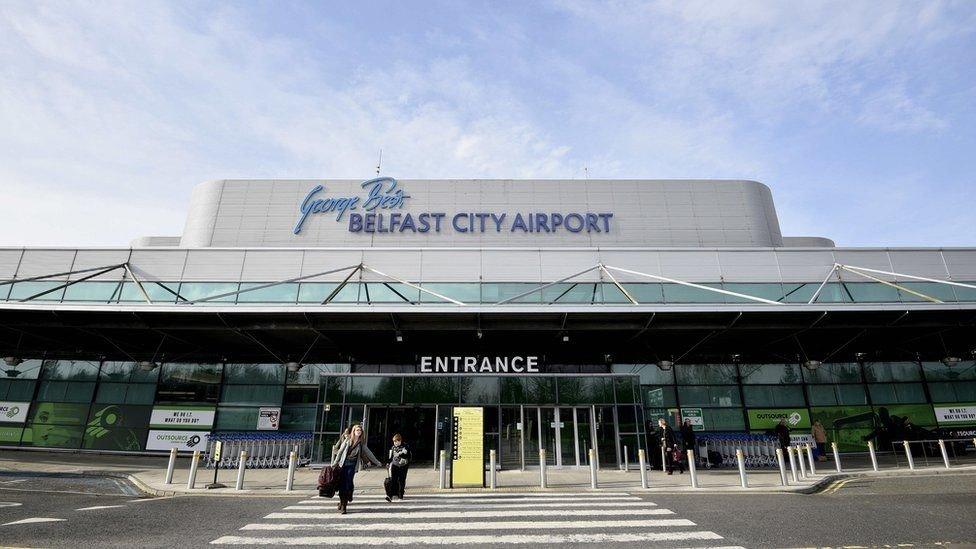Covid-19 vaccine: Second jab date changes could 'jeopardise' rollout
- Published
- comments
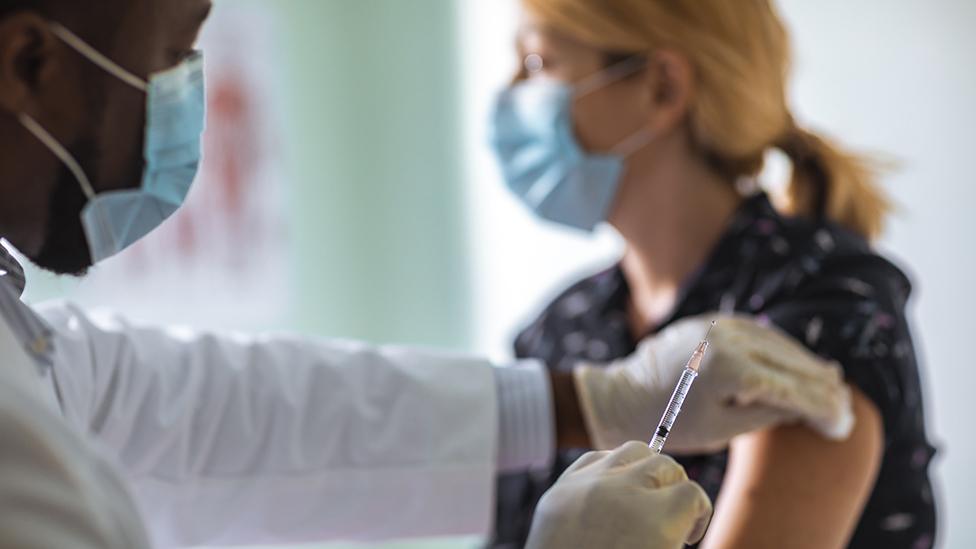
The elderly and most vulnerable have been prioritised for second vaccinations
The number of people seeking to change their second Covid-19 vaccination appointment has increased significantly.
As many as 2,500 requests to change appointments have been made in the last seven to 10 days, according to the head of the vaccine roll-out.
Second appointments are usually generated automatically when a person books their first.
Patricia Donnelly warned mass changes could "jeopardise" the programme.
The number of people seeking to rearrange their appointment has increased at the same time as restrictions have started to ease.
The automatic generation of second dates for vaccinations is in place so that the system can manage staffing, vaccine supply and available appointment slots.
Patricia Donnelly heads up the vaccine programme and is appealing to people to keep their allocated appointment.
"Any large scale changes could potentially jeopardise the overall roll-out of the programme," she said.
"I fully understand that we are all anxious to enjoy a more normal life including an opportunity to enjoy some of the things which have been denied us during the last 18 months.
"However, this programme is a massive and highly complex logistical undertaking requiring intense planning.
"The ongoing cooperation of everyone to come forward for their second dose on their appointed date is crucial."
'Snatching defeat from jaws of victory'
Speaking to BBC News NI, Ms Donnelly urged people to be "patient" if they have contacted a vaccination centre to request an appointment change.
"We're not out of this pandemic yet and I think it's very easy to forget that as life appears more normal and there are more cars on the road and people are returning to activities," she said.
"This feels like snatching defeat from the jaws of victory."
In cases in which rescheduling was unavoidable, the department said it would take time as the staff involved were already running the vaccination centres and organising the programme.
Second doses are required to maximise protection against the virus.
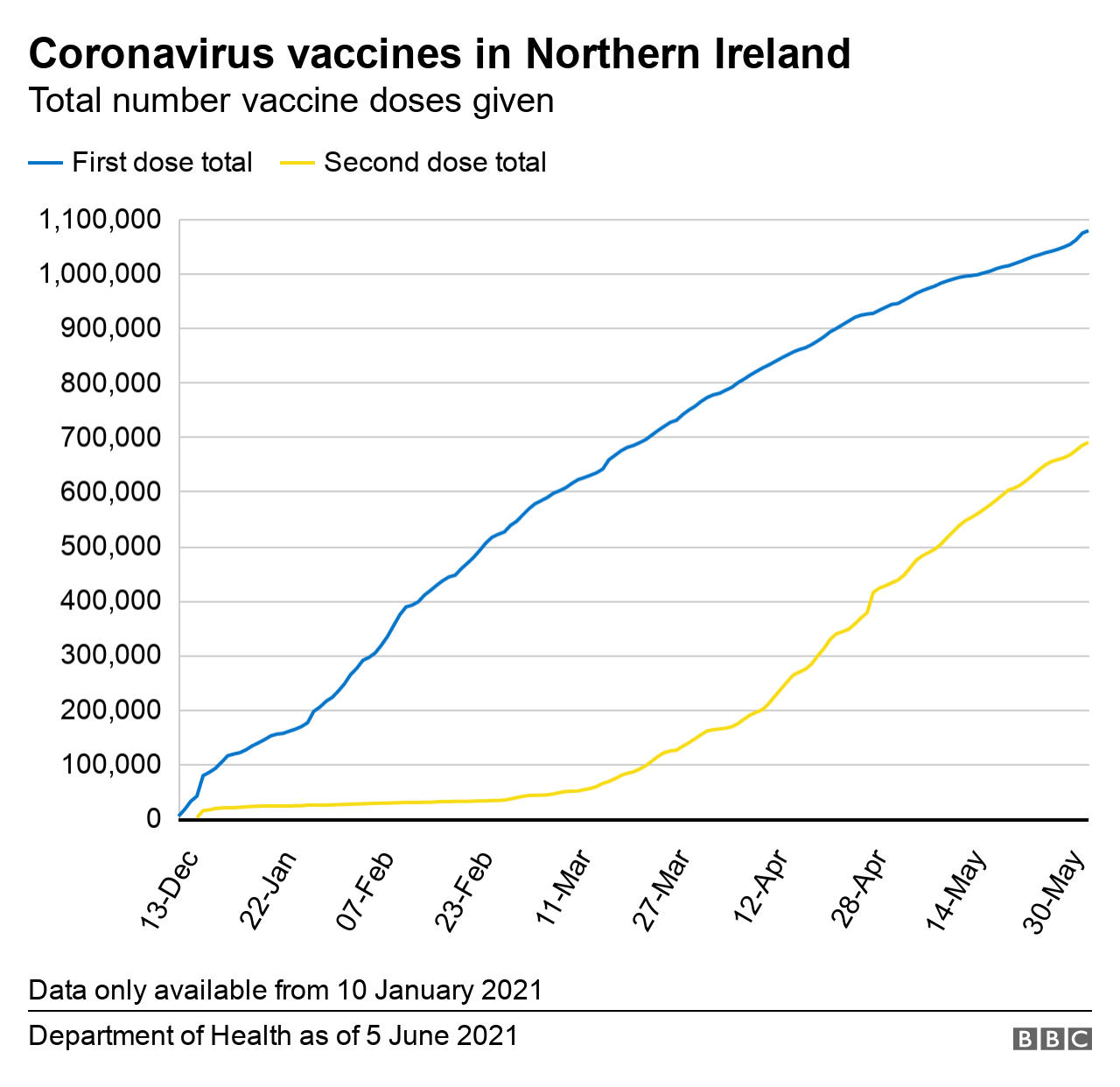

Northern Ireland has been gradually easing restrictions across a number of sectors, including international travel.
On Thursday, Portugal was removed on Thursday from the green list of countries for people travelling from Northern Ireland, instead being moved to the amber list.
It means those seeking a holiday there will have to self-isolate for 10 days on their return, as well as booking pre- and post-arrival testing.
The move comes just two weeks after the Stormont executive announced its travel green list green list of the 12 countries.
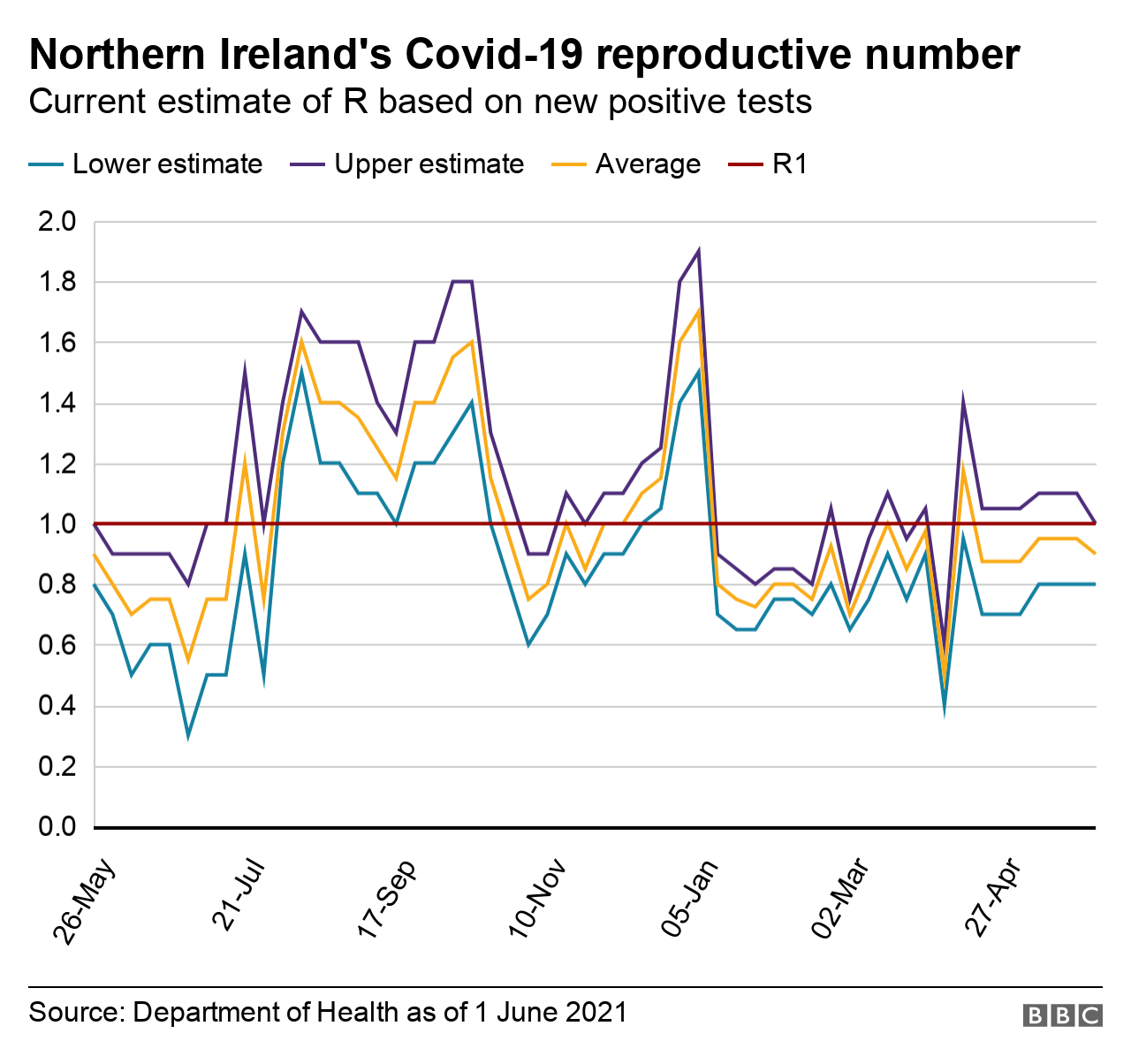

In Northern Ireland restaurants, cafes, bars and other hospitality venues have been allowed to operate indoors since 24 May, having been allowed to resume outdoor service at the end of April.
Hotels and bed-and-breakfasts have also reopened.
The reproductive rate or so-called R number of the virus in Northern Ireland has fallen slightly - it is now 0.8 to 1.0 compared with 0.8 to 1.1 last week.
Related topics
- Published3 June 2021
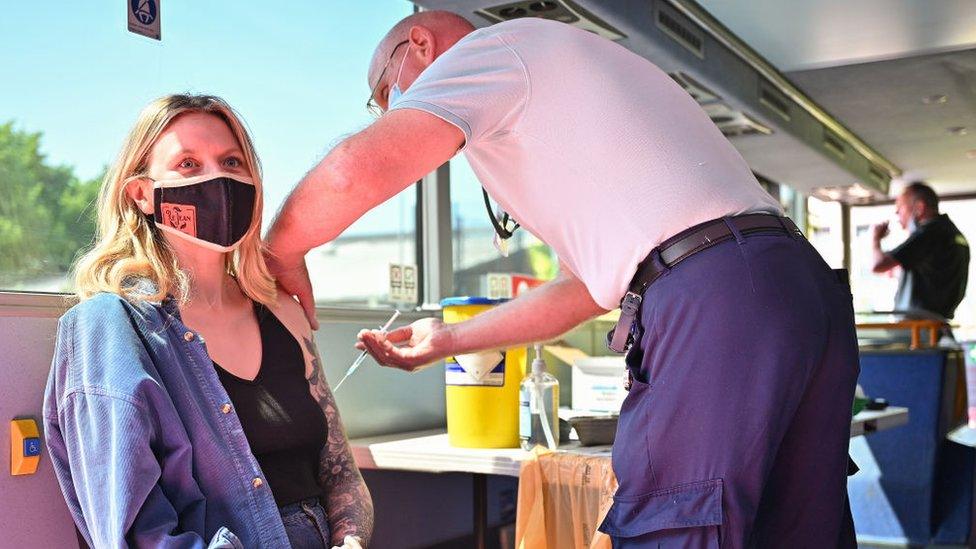
- Published7 January 2022
